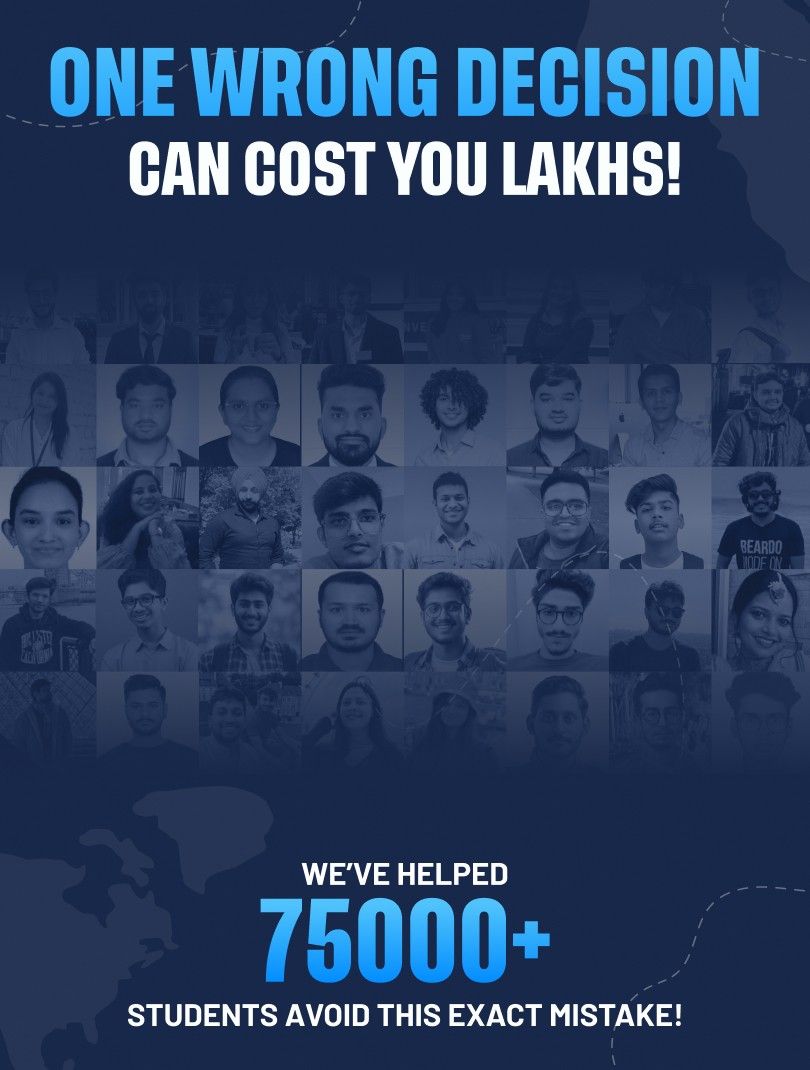
Everything You Need To Know About Post Study Work And Establishment Card After Your Studies in Denmark
Everything You Need To Know About
Post Study Work and Establishment Card
After Your
Studies In Denmark
Introduction:
Denmark has emerged as a popular choice for studying abroad in recent times. This popularity is due to the many perks that Denmark has to offer for prospective students. The country is a great study destination due to its high-quality education and also for students who want to migrate with their spouse & kid. Denmark offers opportunity to students’ spouse to work full time and the country also has a high minimum wage of up to 20 euros per hour. On top of these perks, Denmark is also one of the happiest countries in the world and it presently holds the position of 2nd happiest country, surpassed only by Finland.
These perks will only motivate students to want to stay in the country after their studies. For that and to work and get employment in Denmark you need an Establishment Card. To know all about Establishment Cards and how to get one, keep reading.
What you need to know
1-Who can apply for an establishment card?
You can apply for an establishment card after you have completed a Danish professional bachelor's, bachelor's, master’s or PhD degree.
But you can not apply for an establishment card if a you complete an educational programme not approved by a state authority where only statements from the Danish Evaluation Institute (EVA) exist.
Students can also apply for an establishment card after each completed degree. E.g., if you have gotten an establishment card after your bachelor’s and have started master’s, you can apply for another card after completion of master’s.
2-What are the conditions?
- You must have completed a Danish higher education programme:
It is required for an applicant to have completed a higher education degree be it bachelor’s, master’s or PhD from a publicly accredited educational institution in Denmark.
At the time of application, applicants must provide proof in the form of documentation which shows that they have completed the educational programme. The documentation must be in the form of diploma. A pre-authorisation is not sufficient proof.
In the case where applicants are unable to get diplomas in time for applications, official documentation from the educational institute stating that the programme has been completed by the applicant is sufficient.
-You must apply within 1 year of completing your education:
After completing their education, applicants must apply within a year. At the time of submission, the applicants must also be residing in Denmark legally.
- You must be able to support yourself:
During the first year of their stay, applicants must be able to support themselves and any accompanying family members financially. They are also required to provide documentation as proof for the same.
Documentation can be in the form of bank statements or proof of salary.
Funds are considered sufficient if they correspond to the following: [DDK = Danish Krone]
- DKK 90,492 (2021 level): Applicant is in Denmark without any family
- DKK 180,984 (2021 level): Spouse is accompanying applicant to Denmark
- DKK 268,812 (2021 level): Spouse and any children are accompanying applicant
- DKK 178,320 (2021 level): Only children, not spouse, are accompanying applicant
It is a requirement that applicants must not receive graduate allowances (dimittenddagpenge) or benefits under the terms of the Active Social Policy Act during their stay in Denmark.
Use the following link for more information on self-support requirements - https://bit.ly/3aheeqY
3-What are my rights if I am granted a permit?
- Residence:
A residence and work permit allows applicants to stay in Denmark for the period of time that the permit is valid. A permit also allows you to stay in the Schengen area for up to 90 days within the last 180 days. But it does not allow applicants to work in other Schengen countries.
Applicants must not give up their Danish address or stay abroad for longer than 6 successive months, because such a violation will result in the lapse of their permit. This means that applicants will lose the right to stay in Denmark.
If they need to stay abroad for longer, applicants must apply for a dispensation to prevent the permit from lapsing.
Use the following link for more dispensation option - https://bit.ly/3DeljVw
- Work:
Applicants have the right to start working as soon as they have submitted an application for an establishment card if they had a residence permit as students.
With an establishment card, applicants have the right to work in any company and in any position in Denmark. They don’t need to apply for a work permit when they get a job. On top of that, they are allowed to run their own business.
In the case of a change in employment, applicants do not need to apply for a new residence permit
Use the following link to learn more about Danish working conditions - https://bit.ly/2YrZ2VI
- Public Benefits:
Applicants are not allowed to receive graduate allowances (dimmitenddagpenge) and other benefits under the terms of the Active Social Policy Act. There also might be other benefits that they cannot receive. In the case where an applicant or their family member receives such benefits, the family will lose their right to stay in Denmark and their permit will be revoked.
Use the following link for more information on public benefits and to know the list of benefits applicants are not allowed to take - https://bit.ly/3AmJwap
- Danish lessons:
With an establishment card, applicants are entitled to partly user paid Danish lessons. This however is with the condition that applicants must be 18+ years old and have their Danish address registered in the Danish National Register.
The municipality of residence of the applicant is obliged to offer Danish lessons and refer applicants to a language center.
- Additional Information:
Applicants need to acquaint themselves with a number of things if they are going to work and stay in the country. The number things they need to get information on will also depend on the applicant’s personal situation.
For more information applicants can use the portal - lifeindenmark.dk
The portal provides information of different subjects like-
- NemID
- The CPR register
- Health card
- Tax matters
- Holiday entitlements
- School and day-care
- Housing
- Danish lessons
- Car registration and driver’s license
4-How long can I stay in Denmark?
Applicants can stay in Denmark for up to 3 years after obtaining an establishment card.
Although the card is initially granted for 2 years, applicants can extend 1 more year if they are employed in a job relevant to a completed educational programme.
However, a residence permit can only be valid until 3 months before the expiry date of passport.
Which means if applicant’s passport has a shorter validity than the otherwise possible period of stay, the residence permit will be shortened. When applicant has renewed their passport, they can apply for an extension of the residence permit. But this can only be done 3 months before the permit expires at the earliest.
Use the following link to know more about passport requirements - https://bit.ly/3DlbncQ
5-Can my family be granted a residence permit?
A residence and work permit based on an establishment card will allow the applicant’s family to come with them to Denmark. A permit can also be granted to their spouse, registered or cohabiting partner as well as children under the age of 18 living at home.
If the applicant’s family is already in Denmark, they must apply for a new residence permit in order to keep staying in Denmark.
Use the following link for more information - https://bit.ly/3mvufzg
6-What more do I need to know before I apply?
The application must be submitted to the Danish Agency for International Recruitment and Integration (SIRI). At the time of application, applicants must be in Denmark legally. SIRI will contact applicants if they need further information.
Use the following link for more information on legal residence - https://bit.ly/3lj2TwH
How to Apply for an Establishment Card
To apply applicants will have to use the following link to access the application page and follow the steps. - https://bit.ly/3AoUcVP
We have also explained the steps here in a step-by-step guide for applicants:
1-Create case order ID:
Here the applicants will have to create a case order ID as in applications with a fee, an ID is necessary. Applicants will be required to fill their personal information in this step’s form.
Fee exemption is possible in certain cases like-
- The Association Agreement between the EU and Turkey
- Denmark’s international obligations
Fee exemption is possible in certain cases like-
But applicants still have to create a case order ID. If fees have been paid but it is not warranted, the whole fee will be refunded. For more information on fee exemption use the following link - https://bit.ly/3Dnh0Ho
2-Pay Fees
You can check your fee payment status in this step. Applicants should also make sure to create case ID, pay fees and submit the application in the same year as the fees ae regulated every year on January 1st. If applicants end up submitting after the date and pay before the date, the application may be rejected.
3- Gather Documents
Applicants should keep all necessary documents necessary for the application ready.
Below is a list of necessary documents-
- Proof of paid fee, applicant should attach receipt of payment
- Copy of all pages of your passport, including all empty pages and the passport’s front and back cover.
- Documentation proof that applicant has completed a Danish higher education
- Documentation proof that applicant can support themselves during their stay in Denmark
4- Complete application form
In this step applicants will have access to the EK1 form that is used to apply for a residence permit based on an establishment card.
Use the following link to access the form and follow all steps that are laid out - https://bit.ly/3FpyRiZ
It is necessary that applicants should have completed steps 1 to 3 before step 4.
5- Biometrics
For applying for a residence permit, it is necessary to record biometrics. Applicants must have a facial photo taken and their fingerprints recorded. The photo and fingerprints will be stored on a microchip embedded in the residence card, which will be issued to applicants if they are granted a permit.
To know where applicants can have their biometric features recorded, use this link - https://bit.ly/2ZUYCau
The deadline to submit biometric details has been extended by from 14 days to 4 weeks due to Covid-19. If in case an applicant is unable to apply within this timeframe, they should contact SIRI with an explanation. They can use the following link - https://bit.ly/3mB4M7D
6- Receive an answer
An application is successfully submitted if applicants have:
Final Thoughts:
After applying to universities, some universities may require students to go through interviews to determine whether the student is a good fit for the university or not. So, our team will walk students through the entire process from preparing for the interview, dressing appropriately to helpful tips for giving interviews.
- Acceptance Offer Letter:
Following interviews and applications, the universities that will accept you will send you an offer letter. Edugo will help you through reviewing the offer, request any changes and reply to the letter as well. The university will then confirm your admission.
- Further Process:
For students who want to apply to Denmark for studying abroad and migrating there, Edugo Abroad offers all the required services from consultation and counselling to guiding through application process. Students can benefit from Edugo Abroad’s years of experience and close working relationship with many reputed Danish universities.
Get A Free Consulting Today
Get your answers related to abroad study.




